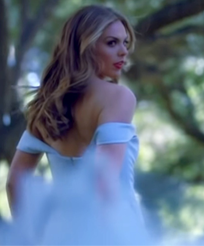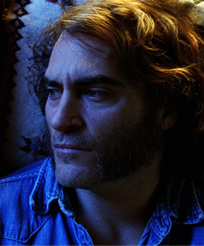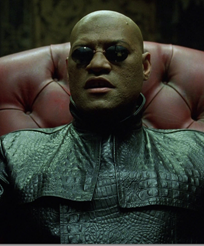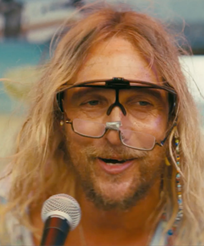Noah Baumbach, working in the vein of his artistic forefather, Woody Allen, is one of our generation’s most prolific chroniclers of a certain brand of New York intellectual: charmingly pedantic and intensely self-absorbed, neurotic and sensitive, middle-aged, middle-class and middling, educated and white and male in the Mailer sense of the word. In The Squid and the Whale, the director’s most critically-acclaimed film, it’s Jeff Daniels’s Bernard, a once-successful novelist whose career hits its downswing as his ex-wife’s hits its upswing. In While We’re Young, Baumbach’s most unoriginal, uneven work, it’s Ben Stiller’s struggling documentarian, Josh, who begins to envy the success of a younger, more vivacious artist. And in The Meyerowitz Stories (New and Selected), which drops on Netflix October 13th, it’s Dustin Hoffman’s irascible Harold, a minor sculptor in the New York art scene and the ailing patriarch of the clan for which the movie is named.
Just as The Squid and the Whale was as much about Bernard’s ennui as it was his children’s inability to cope with his divorce, so to is The Meyerowitz Stories equally about the way in which Harold’s maladjusted descendants come to terms with their father’s moral failings. We meet Danny (Adam Sandler) and Jean (Elizabeth Marvel), Harold’s adult kids from his first marriage, as well as Danny’s daughter, a college freshman named Eliza (Grace van Patten). Later, Matthew (Ben Stiller), Harold’s son from his second marriage, comes into the picture when Harold and his third wife, Maureen (Emma Thompson), entertain selling their house; unlike Danny, who is jobless, and Jean, whose career at Xerox is more or less deemed insignificant by her father, Matthew is a successful accountant, if not a disappointment in the arts department.
Eventually, Harold falls ill. The children, who are not particularly close, are flung together in crisis. There are decisions to make: about the house, the art, the art show, of which Harold’s work is a part, at Bard, where Eliza goes to college. And there are a host of old resentments, too, exfoliated by a blend of factors familiar to most families: time, space and prescription drugs.
As the title suggests, the movie unfolds in vignettes, delineated by title cards and a line of prose, hinting at the action to come. The gambit is clever, even if it’s not in line with Harold’s chosen medium. But, with the exception of an aside—entitled, with parenthesis “(Jean’s Story)”—the film follows a pretty traditional narrative structure. One wishes Baumbach had used the vignettes more daringly. “(Jean’s Story)," which consists of Jean telling her brothers a surprising story from her past in the woods near the hospital where their father is staying, is one of the movie’s most gripping scenes. It is funny and disturbing and heartbreakingly sad, unsentimentally so. Marvel is transformed here, as she walks through the trees delivering her monologue, using them almost as cover; she crafts from a jumble of quirks a fully realized character.
The truth is, Baumbach is at his best when he’s writing and directing women—ironic, given that this film (and the aforementioned others) are so male-focused. That isn’t to say Sandler, Stiller and Hoffman don’t turn in terrific performances here. Sandler, in particular, has been playing a variation of the prototypical man-child for his entire career. In The Meyerowitz Stories, like in Funny People or even, to some extent, Punch-Drunk Love, he reminds us that while he has the tendency to act like a child, he also has the capacity, as a performer, to hurt like a child. As evidenced in a tragicomic fight with Matthew, during which neither want to hurt the other but are at a loss as to what to do instead, Sandler’s Danny seems perpetually surprised by the gravity of his own emotions. The performance is, dare-I-say, Oscar-worthy.
There is no subtlety or mystery, however, when it comes to Matthew, Danny or Harold Meyerowitz. You know who they are, what their grievances are, from the get-go (and if you don’t, they’ll soon tell you). It’s far more interesting to watch Harold’s third-wife Maureen, a drunk eccentric, played with loopy energy by Emma Thompson. Or the ever-guarded Jean. Or the perspicacious Eliza, whose precocious student art films, which she unabashedly shows to her family, hilariously feature her topless, copulating in absurd ways. Or even Harold’s second wife, brought to life in a single, affecting scene by Candice Bergen. That none of these characters get their own chapter, particularly Eliza, is disappointing.
It would appear that while the male characters are people Baumbach already knows, the female characters are people Baumbach wants to know. Perhaps this accounts for the disparity in quality between Baumbach’s white-male-artist movies and his movies about women, like Frances Ha, the underratedly brilliant Margot at the Wedding, which features Nicole Kidman and Jennifer Jason Leigh at their absolute best, and, to a lesser extent, Mistress America. (You could probably make the same argument about Woody Allen, whose most compelling characters are women, ala Hannah (and her sisters), María Elena in Vicky Christina Barcelona, Jasmine in Blue Jasmine and, of course, Annie Hall.)
The Meyerowitz Stories, though, when you boil it down, wrestles with a pair of thorny questions: if an artist is intent on passing himself down to future generations via his art, what does that mean for his children? And if in so doing the artist neglects his children, what should they make of his art? Matthew, the accountant, resents his father’s art—it serves as a constant reminder that he is not an artist himself. Danny and Jean, on the other hand, exalt it; as Jean says, if her father wasn’t a great artist, then that means he was just a dick. How bittersweet, then, that only Eliza, the youngest Meyerowitz, can experience her grandfather's art with a sense of true wonder.













